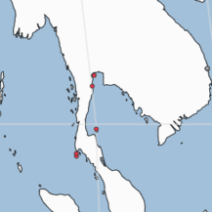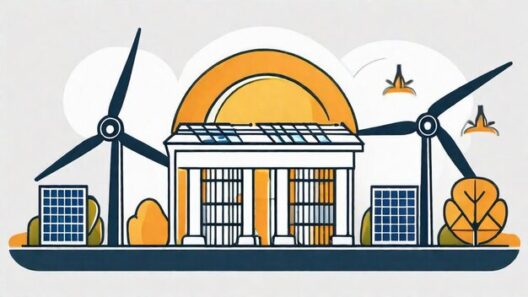The conservation of energy represents a critical avenue for ensuring the welfare of our planet and the prosperity of future generations. As environmental challenges continue to escalate due to climate change, the importance of energy conservation becomes increasingly apparent. Not only does it contribute to a reduction in greenhouse gas emissions, but it also empowers the next generation by instilling values of sustainability, innovation, and responsibility. This essay explores various dimensions of energy conservation and its multifaceted impact on future generations.
Energy conservation, at its core, involves the judicious use of resources to minimize waste. This practice embodies a fundamental principle of environmental stewardship. By adopting energy-efficient practices at home, schools, and workplaces, young people can develop a profound sense of responsibility toward resource management. Engaging in simple acts—such as turning off lights when leaving a room or utilizing energy-efficient appliances—reiterates the significance of individual actions in shaping a sustainable future.
Moreover, fostering a culture of energy conservation can lead to remarkable economic benefits. By reducing energy consumption, families and institutions can lower their utility bills, directing those savings toward more fruitful endeavors. For instance, educational institutions that prioritize energy efficiency often redirect saved funds into educational programs, enriching students’ learning experiences. In turn, this cultivates a generation that not only values sustainability but also understands the financial implications of resource management. The influence of eco-conscious budgeting extends beyond immediate savings; it carves out a new framework for economic resilience, characterized by environmental mindfulness.
Furthermore, energy conservation fuels innovation and technological advancement. As the demand for sustainable solutions rises, the next generation is presented with unprecedented opportunities to explore and develop cutting-edge technologies. Careers in renewable energy, energy efficiency, and sustainable design are becoming increasingly viable paths. Programs focused on engineering, environmental science, and green technology empower students to contribute to significant systemic changes. By encouraging young minds to pursue education in these fields, society fosters a workforce adept at tackling future energy challenges.
The impact of energy conservation stretches beyond practical applications; it also plays a pivotal role in shaping the collective mindset of future generations. As children and adolescents engage with energy conservation initiatives, they internalize the values of sustainability and stewardship. Educational programs that incorporate experiential learning, such as school gardens or recycling projects, help children connect abstract concepts to tangible outcomes. This hands-on approach cements the understanding that their actions can lead to meaningful changes, reinforcing a proactive rather than reactive attitude towards environmental issues.
Interdisciplinary instruction that integrates energy conservation with subjects such as math, science, and social studies enhances learners’ comprehension of climate-related topics. By exploring the scientific principles of energy consumption, geographical implications of resource distribution, and societal impacts of environmental degradation, students become well-rounded individuals equipped to make informed decisions. It is vital for curricula to embrace this holistic approach to education, as it nurtures critical thinkers who grasp the interconnected nature of the world’s challenges.
Additionally, fostering community engagement supports energy conservation initiatives while instilling civic responsibility. Schools and local organizations can collaborate to promote community-based sustainability projects, emphasizing collective efforts over individual actions. Such collaborations teach students the importance of teamwork and communal responsibility. When younger generations participate in local energy audits, tree-planting initiatives, or clean energy campaigns, they develop not just a commitment to conservation but also leadership skills. Empowerment through involvement lays the foundation for engaged citizens who actively advocate for environmental policies and practices in their communities.
As awareness of climate change intensifies, the necessity for energy conservation becomes even more pressing. The looming threats posed by environmental degradation demand proactive solutions. Future generations must navigate a world where the implications of climate change—such as extreme weather events, resource scarcity, and rising sea levels—become commonplace. By championing energy conservation now, we equip them with the tools required to combat these challenges effectively.
Moreover, the synergy between energy conservation and resilience is undeniable. A society that consciously reduces energy consumption develops not just sustainability in the present, but also fortitude for future uncertainties. As energy sources become more unpredictable and the consequences of climate change become more pronounced, adaptability becomes an invaluable asset. Teaching young people the principles of energy conservation fosters an enlightened perspective, empowering them to innovate features for sustainable living that may mitigate future crises—or at least alleviate their severity.
In conclusion, energy conservation emerges as a multifaceted approach to empowering the next generation. Through the principles of responsibility, economic management, technological innovation, and community engagement, today’s youth engage with sustainability issues that will affect their futures. Recognizing the interconnectedness of energy conservation with economic movement and environmental resilience fortifies their capability to enact meaningful change. The current momentum toward embracing energy conservation is a crucial investment in the future. By instilling these values today, we cultivate environmental stewards who will champion sustainability and ensure the vitality of our planet for generations to come.






